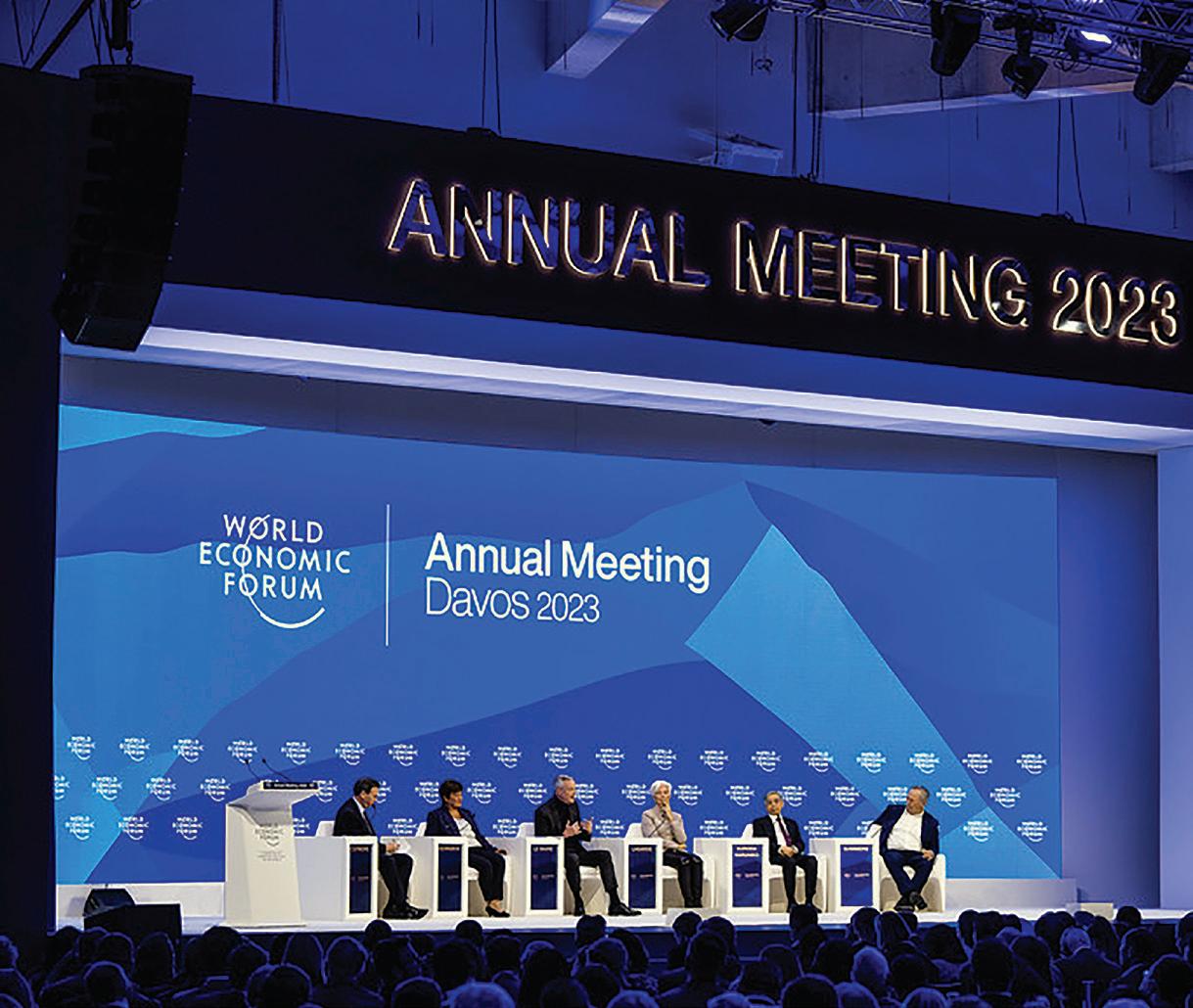
3 minute read
Davos 2023 concludes
by Exeposé
The Government’s failure to enforce guidance has resulted in a postcode lottery which continues to cause heartache for families separated from their loved ones and for those living in isolation. I am pleased that, at long last, the Government has committed to taking steps to end care homes and hospitals being told to stop shutting out visitors, but we are yet to see plans brought forward. I will scrutinise any proposals closely and continue working with campaigners until the rights of people in care settings and their families are secured.
Harry Craig, Music Editor, analyses Davos 2023 and its implications for Britain
Advertisement
EVERY January, the tranquility of the quaint alpine ski resort of Davos, high in the Swiss Alps, is shattered by the arrival of 3,000 members of the global elite, in town for the World Economic Forum (WEF). Attendees from every sector of the global economy — politicians, business leaders, academics, journalists and many more — take over the town for five days of business.
Although in the post-Covid era we have become accustomed to business being done virtually, Davos remains the world’s greatest networking event, providing a place for deals to be done, relationships strengthened, and the global economy reshaped.
From a British perspective, Davos was highly revealing, both of the domestic political situation and Britain’s standing in the world. Neither Prime Minister Rishi Sunak nor Chancellor Jeremy Hunt attended, despite the summit’s centrality to global business, instead staying at home to focus on issues of strikes, cost-of-living, and Tory sleaze.

This was contrasted by Labour leader Keir Starmer’s appearance at Davos, in an apparent charm offensive that proved Labour as the party of business to fill the void left by the Tories. This appears to have been a success — Starmer and his Shadow Chancellor Rachel Reeves were a major draw for business leaders, anticipating a likely Labour victory at the next general election. Their embrace of green technology was particularly popular.
However, Britain’s representatives at Davos could not escape the fundamental issue that, post-Brexit, Britain’s role in the world has been relegated to that of minnows. Businesses are reluctant to invest in an economy with the slowest growth in the G7, although they may take some comfort from Starmer’s promise of a closer EU-UK relationship if Labour comes to power. Nonetheless, politicians were not the major draw at Davos that they used to be — the only G7 leader present was Germany’s Olaf Scholz, and Russia’s Putin and China’s Xi were also absent. Davos is now a forum not just for businesses, but also for activists, including Greta Thunberg, utilising the summit’s focus on the climate emergency. For those who believe in the role of a capitalist global economy in combatting climate change, Davos is the ideal place to forge deals on green technologies, led by the US pledge of a US$369bn green subsidy scheme for electric cars, batteries, and renewable energy. The strong presence of Brazil, with climate change denier President Bolsonaro now out of office, was also welcomed, albeit blunted by the relative absence of China and Russia, two of the biggest carbon emitters. To activists like Thunberg and the wider masses, the summit’s climate optimism seems completely nonsensical. Just a few weeks ago, the same Swiss Alps in which the WEF is held recorded temperatures as high as 20°C. A tenth of the WEF’s delegates arrived on private jet, making their environmentalist claims seem hollow, and reiterating arguments that Davos is merely empty gestures that businesses fail to act on. Beyond climate, other global issues made an appearance at Davos. China’s re-emergence on the global stage after ending its zero-Covid policy has been cause for cautious optimism, and Vice-Premier Liu He pledged to “abandon the Cold War mentality” and that China would “open up wider”, although they had a distinctly low profile at the summit. Russia’s global isolation also continued, creating a gap that Gulf states including Saudi Arabia and the UAE willingly filled.
As the elites mingled, however, outside perceptions of the summit as out of touch with reality have been reinforced. The Guardian ’s economics editor deemed the summit “long on rhetoric, and short on action”, and to many, Davos epitomises the structures that reinforce global inequality and the climate crisis. Whether the thousands of delegates at the WEF can effect substantial change remains to be seen.










